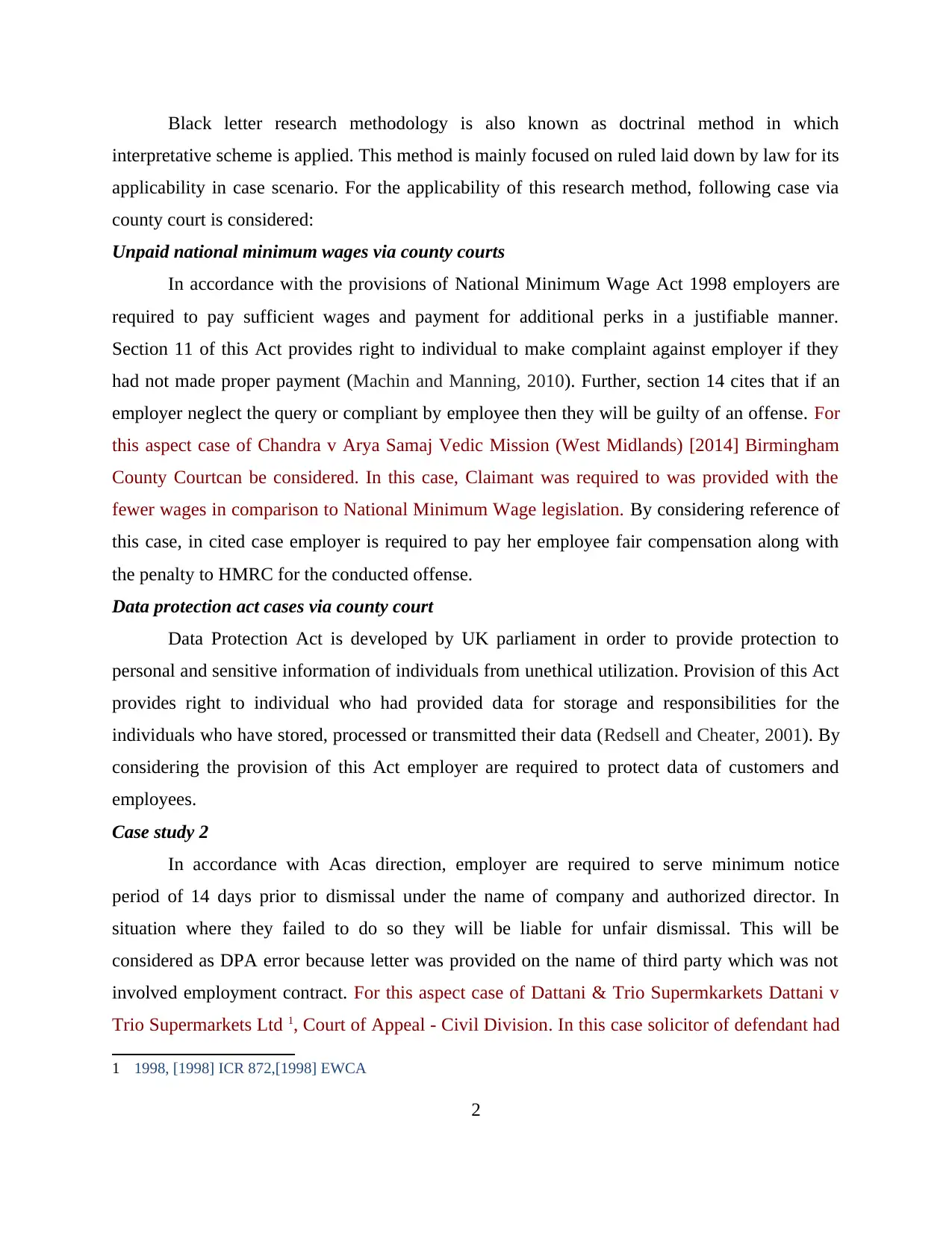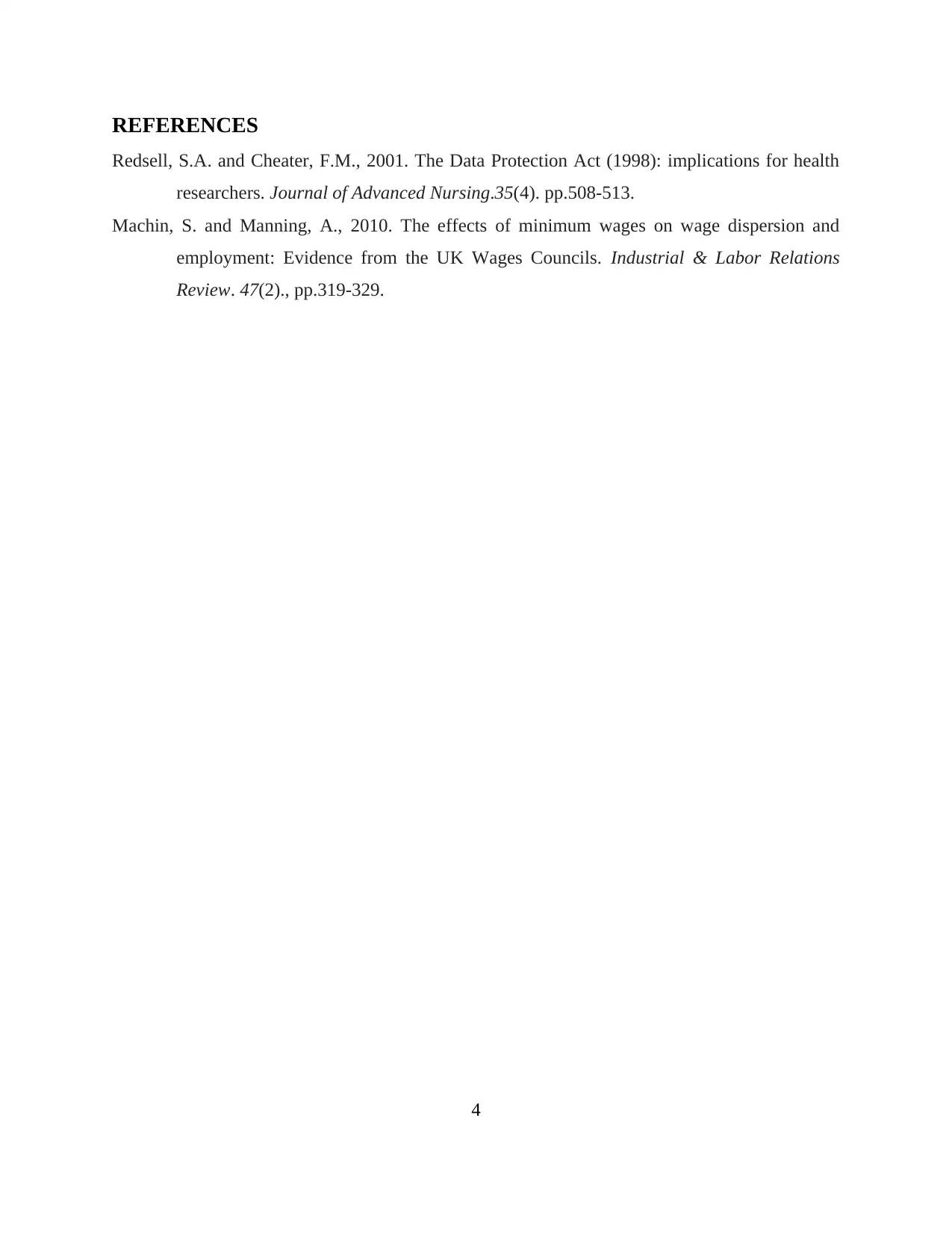Legal Research: Case Studies on Employment Law and Data Protection Act
VerifiedAdded on 2019/12/28
|4
|554
|208
Case Study
AI Summary
This case study delves into legal research methodologies, particularly the Black Letter approach, through the examination of employment law cases. The assignment analyzes scenarios related to the National Minimum Wage Act 1998, focusing on the case of Chandra v Arya Samaj Vedic Mission, where inadequate wage payments were challenged. It also explores the Data Protection Act and its implications for employers, referencing Dattani & Trio Supermarkets Ltd to illustrate issues of unfair dismissal due to data protection breaches. The analysis covers the legal principles, case details, and implications for employers. The study also investigates the importance of data protection, notice periods, and the consequences of non-compliance with employment regulations, providing a comprehensive overview of legal research and practical application within employment law.
1 out of 4










![[object Object]](/_next/static/media/star-bottom.7253800d.svg)